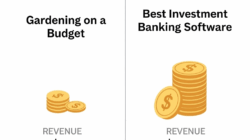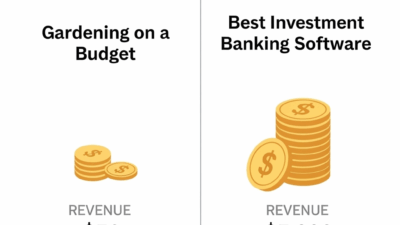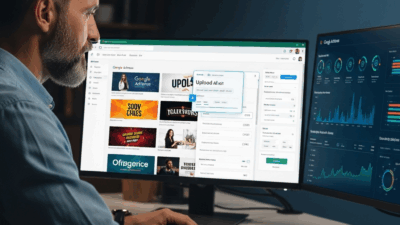In an age where user data is more valuable (and protected) than ever, understanding cookie consent is essential for every website owner. Whether you’re running an online store, blog, or business site, complying with global privacy regulations like GDPR and CCPA isn’t optional — it’s legally required.
This guide explains the importance of cookie consent, its impact on your business, and the tools that help you stay compliant without compromising user experience.
What is Cookie Consent?
Cookie consent refers to a user’s permission for a website to store or access information on their device, typically through small data files known as cookies. These cookies track information such as session history, personalization, analytics, and ad targeting.
Under regulations like the General Data Protection Regulation (GDPR) and the California Consumer Privacy Act (CCPA), users must be informed about cookie usage and have the option to accept, reject, or customize which types of cookies they allow.
Why Cookie Consent Is a Legal Requirement
Privacy laws globally are cracking down on how businesses collect and use personal data. For most websites that reach users in the EU, California, or other regulated regions, failing to implement cookie consent can lead to:
- Legal fines (up to millions in the EU)
- Website takedowns
- Damaged user trust and brand reputation
Suppose your site uses third-party tracking tools, such as Google Analytics, Facebook Pixel, or embedded YouTube videos. In that case, you must request consent before cookies are set, not after they are set.
Refer to reliable sources, such as GDPR.eu and the CCPA FAQ by the State of California, for exact requirements.

Cookie Consent vs Privacy Policy: What’s the Difference?
While your privacy policy outlines how your site handles data, cookie consent is the active step where users agree to that policy in practice.
A user might read the privacy policy once, but cookie consent happens every time they visit your site. That’s why cookie banners must be clear, informative, and compliant with relevant regulations.
Components of a Compliant Cookie Banner
A proper cookie banner should include:
- A short explanation of why cookies are used
- Clear “Accept” and “Reject” buttons
- A link to cookie settings for customization
- A link to the complete privacy or cookie policy
- No default consent (pre-ticked boxes are non-compliant)
Design matters too — banners should not obstruct core content or force users to accept.
Cookie Consent Tools You Can Use
CookieYes
CookieYes is a popular cloud-based solution that offers customizable cookie banners and comprehensive compliance support for GDPR, CCPA, and other relevant regulations.
OneTrust
OneTrust offers enterprise-level cookie consent management, featuring audit logs and geo-targeting capabilities.
Osano
Osano is a user-friendly platform with open-source consent banners and automatic blocking of third-party cookies until consent is given.
Iubenda
Iubenda combines cookie consent with the generation of privacy policies and terms — ideal for small businesses seeking a one-stop compliance suite.
How Cookie Consent Impacts SEO and UX
Google doesn’t penalize you directly for using cookies. However, poor implementation of cookie banners (e.g., pop-ups that block core content or lack mobile optimization) can negatively impact page experience scores.
Properly designed cookie notices support a good UX and ensure legal compliance, protecting your rankings and user trust.
Best Practices for Implementing Cookie Consent in 2025
Respect Regional Laws
Use geo-targeting to adjust banners based on the visitor’s location. For example, users in the EU should see full opt-in banners, while others may only require a notice of consent.
Integrate with Tag Managers
Tools like Google Tag Manager can be integrated with cookie consent tools to manage tracking scripts based on user input.
Store Consent Logs
Most laws require you to document consent actions. Good tools automatically store logs for auditing purposes — essential for proving compliance if you’re ever investigated.
Update Your Consent Policy
As privacy laws evolve, regularly update your cookie policies and banner language to ensure compliance. This includes specifying any third-party cookies used and their purposes.

Cookie Consent for E-Commerce Sites
E-commerce websites, in particular, need to ensure full cookie compliance due to their heavy reliance on tracking cookies for remarketing, personalization, and checkout behavior analysis.
Using platforms like Shopify or WooCommerce? Many plugins, such as GDPR Cookie Consent by WebToffee, help you comply effortlessly.
Cookie Consent on Mobile Devices
Ensure that cookie banners:
- Are mobile-responsive
- Do not overlap with system UI elements
- Offer easy access to cookie settings
Mobile visitors now account for more than 60% of web traffic, so non-compliant mobile banners could result in non-compliance across the majority of your user base.
Conclusion: Cookie Consent is Non-Negotiable in 2025
From building trust to avoiding legal trouble, cookie consent plays a vital role in every modern website’s strategy. It’s not just about compliance — it’s about respecting your users’ privacy and giving them control over their data.
Whether you choose tools like CookieYes or OneTrust, what matters most is transparency and functionality. Make your banner clear, accessible, and flexible, and you’ll future-proof your business in a world that demands privacy-first web design.







